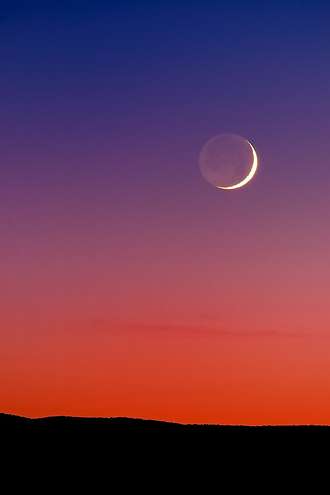FWP:
SETS
ROAD: {10,12}
SKY {15,7}
SUN: {10,5}
Josh is right to see in this verse an instance of 'elegance in assigning a cause,' since it accounts both for the line of light on the horizon after sunset (the path of the sun's departure that is the 'thread of a ray'), and also for its being accompanied by the crescent moon (which opens an 'embrace of leave-taking'). Now we know what's really going on-- not just random astronomical phenomena, but a traveler setting out on a journey, being seen off with a farewell embrace. The visual image is direct, approachable, and charming. On the rich possibilities of the 'embrace of leave-taking', see {57,6}.
Nazm has trouble accepting this verse into the ghazal universe. He made a similar complaint about {14,2}, which is, like this one, a verse of observation about the time of day and the natural world. I think that in both cases what he's objecting to is the way the verse seems to set the stage, as though preparing us for further action in due course-- the kind of further action that would then be presented in an ode, but not (as a rule) in a ghazal.
But surely the range of the ghazal can't be made so narrow
that it would refuse to admit verses like this! On the contrary in fact: if
Ghalib considers verses like this to be ghazal verses, why should we be more
royalist than the king? Nazm had his own critical axes to grind, of course,
as is evident in the course of his comments on many other verses as well.
I'd like to write about him at more length sometime.

Nazm:
That is, the sun travels out of the sky, and the sky has opened up the embrace of the crescent moon. That is, after its setting, the line that shows itself just above the horizon is its track.... But in this theme there's no 'ghazalness' [ġhazaliyat]; if it would be the opening-verse of an ode, then it would be acceptable. (76)
== Nazm page 76